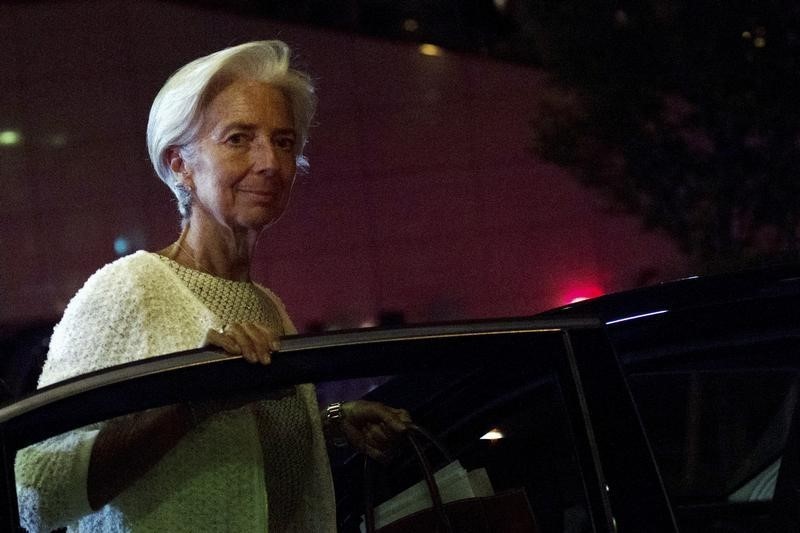By Geoffrey Smith
Investing.com -- The European Central Bank emerged intact on Thursday from what some fear could be the first salvoes of a new financial crisis.
At her regular press conference, President Christine Lagarde trod a fine line between acting tough on inflation and acknowledging the need for caution amid growing signs of financial stability risks, as the last year of rate hikes around the world starts to weed out the weaker elements of the financial system.
By the end of the press conference, she appeared to have succeeded. Neither the euro nor Eurozone bond yields nor bank stocks had reacted particularly violently - something of a triumph for a President who has been prone to gaffes since taking over from the more sure-footed communicator, Mario Draghi. Within a few minutes, they were even marching higher.
That, however, owed as much to the developments in the U.S. as to Lagarde's skill: Bank stocks rose across the board as The Wall Street Journal reported that JPMorgan (NYSE:JPM) and other tier-one banks were planning coordinated support for First Republic Bank (NYSE:FRC), a mid-size institution that has been seen by many as the likeliest next domino to fall, after the collapse of Silicon Valley Bank, Signature Bank, and Silvergate Capital.
Earlier, the bank had raised its official rates by 50 basis points each, taking its key deposit rate and refinancing rates to 3% and 3.5%, their highest since 2008. But it had dropped warnings about further rate hikes being needed, stressing instead that the high degree of uncertainty created by recent market volatility forced it into taking its lead from economic data as they come in.
That stance "shows that the peak in interest rates might be nearer than many think," said Carsten Brzeski, global head of macro research at ING Bank.
More subtly, the bank had also produced a new set of inflation forecasts that were also lower than many had expected, something that would make it easier for the ECB to pivot to loosening monetary policy if financial market tensions do remain elevated and choke off economic growth.
The ECB now sees inflation averaging only 2.1% in 2025, and core inflation only 2.2% - not far above its medium-term target of 2%. This took many by surprise, given that core inflation is still accelerating, and given that Lagarde herself warned that underlying price pressures are still "strong," against a backdrop of high energy prices and low unemployment.
"We see this change based more on a pure judgment than real data and there continues to be a lot of uncertainty around the forecasts," said Nordea analyst Jan von Gerich in a note to clients. He said he still sees the ECB delivering "several further rate hikes" in the course of the year, even though the likelihood of it moving in smaller steps has increased.
Throughout the press conference, Lagarde tried to rebut suggestions that the ECB would fold and start to cut rates as soon as market volatility rises, repeatedly arguing that there was "no trade-off between price stability and financial stability."
With hints of broader action to contain the budding crisis in the U.S., and with Credit Suisse (SIX:CSGN) handed a $54 billion lifeline from the Swiss National Bank (SIX:SNBN) overnight on Wednesday, the markets were in no mood to test that commitment. Even so, as Brzeski said, "the last few days have been a good reminder to the ECB that the next steps in fighting inflation will be much harder than the steps taken so far...Now that interest rates are in restrictive territory, every additional rate hike increases the risk of breaking something."
Should you invest $2,000 in JPM right now?
Before you buy stock in JPM, consider this: ProPicks AI are 6 easy-to-follow model portfolios created by Investing.com for building wealth by identifying winning stocks and letting them run. Over 150,000 paying members trust ProPicks to find new stocks to buy – driven by AI. The ProPicks AI algorithm has just identified the best stocks for investors to buy now. The stocks that made the cut could produce enormous returns in the coming years. Is JPM one of them?
Reveal Undervalued Stocks Now